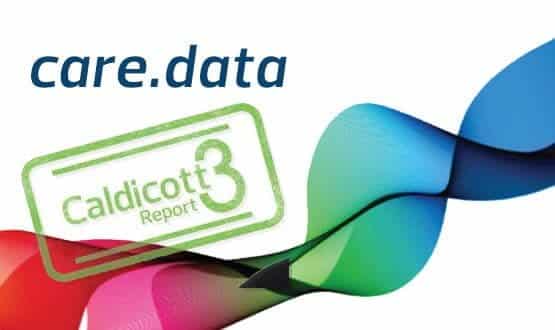Campaigners fear care.data plans still live
- 4 August 2016

Parts of the controversial care.data programme could live on but with fewer options for patients to opt-out, MedConfidential has warned.
Last month the government “closed” the care.data national data collection and sharing programme. The decision was made public on the same day the National Data Guardian, Dame Fiona Caldicott’s report on data security, consent and opt-outs was released.
But Phil Booth, co-founder of privacy campaign group medConfidential, said many recommendations in the report would see the care.data programme continue in another guise; with the extraction of a new GP dataset set to go ahead.
Furthermore, the report recommended that patients should no longer be given the ability to object to their GP records being shared with the Health and Social Care Information Centre [which became NHS Digital on 1 August]. This would mean an end to what is currently known as a “type 1” objection, Booth said.
Care.data was set-up to extract data sets from different organisations, starting with GP practices, and link them to an expanded set of Hospital Episode Statistics within the 'safe haven' of the HSCIC/NHS Digital.
However, the programme was paused amid confusion about how patients could opt-out of the scheme and how the data was being used, including suggestions de-identified pateint data could be sold to marketing companies and insurers.
An NHS England public information campaign around the programme was also heavily criticised for not mentioning the programme by name or providing an opt-out form.
Against this backdrop late last year, health secretary Jeremy Hunt asked Dame Fiona to review data security, consent and opt-out in health and social care.
The subsequent report made sweeping recommendation to improve data security across the NHS, including improved information governance, independent oversight, and harsher penalties for breaches.
It also recommended giving patients the ability opt-out of one or both of “allowing my information to be used to run the NHS and social care system” or “support research to improve treatment and care”.
However, the report also endorsed expanded central data collection and said patients’ ability to opt out of information due for de-identification to be phased out “in due course” because it risked degrading the quality of data.
While the report is now open for public consultation, the government has indicated it will back key recommendations.
In announcing the closure of care.data last month, then life sciences minister George Freeman said “the government and the health and care system remain absolutely committed to realising the benefits of sharing information, as an essential part of improving outcomes for patients”.
Neither NHS England or the Department of Health provided a response to questions posed by Digital Health News.
But in a statement, NHS Digital said all gathering of patient data was now, and would be in the future, subject to legal oversight. This includes independent scrutiny by the standardisation committee for care information which oversees collection of data and the data access advisory group, which oversees requests for data.
What information might be gathered and shared in future would be depend on the outcome of consultation, the statement said.
“It is vital that there is a full consultation and dialogue with the public and professionals before any implementation of the recommendations can take place.”
Public submission on the Caldicott recommendations close on 7 September.
Want to know more about the Caldicott report's implication for data collection and consent. Read our feature here.



